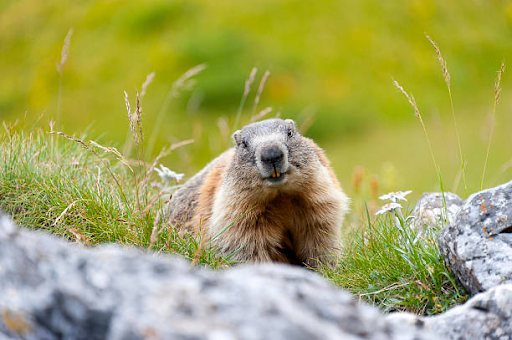Why Does Everyone Hate Velma?
On January 12 of this year, HBO Max premiered the first few episodes of Velma, a spin-off show of Scooby-Doo, Where Are You? starring Mindy Kaling.
Serving as an alternate universe origin story for the hit classic, this adult animated series primarily focuses on Velma Dinkley as she tracks down the mysterious disappearance of her mother. The show also features many of the other beloved members, including Norville “Shaggy” Rogers, Fred Jones, and Daphne Blake, reimagined as awkward high-school students in a setting that takes place before the creation of the Mystery Inc. Gang.
As a reboot and modernized take on a beloved children’s cartoon, Velma has been blowing up all over the Internet — for all the wrong reasons. Despite its reputation of never-ending conflicting viewpoints and perspectives, the entire Internet can agree on one thing: the new Velma show is absolutely terrible. But why?
You don’t even need to be a Scooby-Doo fan to take one look at this show and realize that the characters aren’t what anyone remembered them as. Perhaps the most obvious change to the characters is the race-swapping: Velma is Indian, Shaggy (a.k.a Norville) is African-American, and Daphne is Asian. Fred is still white, but that doesn’t mean he’s still the same person.
In fact, many of the negative reviews of this show stem from this very aspect of the show: none of the characters are what they used to be. HBO has taken all the lovable and unique characters of the original gang and remade them in a way that no one seems to appreciate. Fred goes from a brave and fearless leader to a stereotypical “white boy” who’s insecure and spoiled. The beautiful and enthusiastic Daphne is crushed by her drug-dealing, personality-lacking alter ego. Even Shaggy’s counterpart, Norville, is generic when compared to the original and lovable hipster Shaggy, which made him the most popular character in the original show.
As for Scooby-Doo himself, he’s not even in the show. Creator Charlie Grandy claimed that leaving him in the series would make it appear too childish. While omitting Scooby-Doo from the show isn’t a serious problem, his presence is still sorely missed by fans.
However, the most problematic character change in the show is perhaps Velma herself. Fans remember Velma as a highly intelligent, sharp-witted young woman with an interest in science and mysteries. So you can imagine the disappointment when they were introduced to the new selfish, racist, and incredibly toxic Velma that HBO presents.
Mindy Kaling, the voice actress of Velma and executive producer of the show, mentioned the decision to make Velma a reflection of Kaling’s South-Asian ethnicity during an interview with Entertainment Weekly:
“The essence of Velma is not necessarily tied to her whiteness. And I identify so much as her character, and I think so many people do, so it’s like, yeah, let’s make her Indian in this series.”
This actually demonstrates a common thread of Mindy Kaling and her TV shows: self-inserting a character that represents Kaling’s own personality and ideals, such as Kaling’s renowned role as Kelly Kapoor from The Office. In fact, many fans claim that Velma’s toxic personality makes her the animated caricature of Mindy Kaling, who also gets a rocky reputation as an actress.
The way Velma was written made it incredibly difficult for fans to enjoy her as a main character, as she is constantly making rude and racist remarks to everyone in the show. While the show attempts to be “woke” by creating ethnic diversity among the characters, these efforts are completely outweighed by Velma’s blatant racism towards white people, almost as if the show is basically saying: “Racism is okay if it’s towards white people.” For instance, when Fred becomes a suspect of the murder of two teenage girls, Velma’s only apparent claim she makes as to why Fred was indeed the murderer is that he is simply “a white rich guy with a tiny dong.” Ah, yes, totally comedy and not at all racist.
Despite all of the negativity circling, the Velma series reportedly set viewership records for HBO Max. Velma’s premiere was HBO Max’s most-watched animated series debut ever (this seems like an amazing accomplishment, until you realize that Velma was HBO Max’s only animated series premiere). It’s likely that many curious parties within Velma’s audience started watching the show just to see what all the criticism and backlash was about, and what the biggest problems are. Other people who are joining this “hate-watching” phenomenon hate this show so much that they will go out of their way to watch the show just to marvel at how impossibly bad this show is. It’s most likely this hate-watching that ultimately secured a future for this show, as HBO Max’s Velma has already been confirmed for a season 2, although no premiere date has been announced just yet. It makes one wonder: is the audience to blame for the show’s “success”?
Wherever you are in the political spectrum, it’s safe to say that Velma failed miserably at trying to appeal to audiences by being diverse and woke. So much so that it begs the question: Who is this show for? This show is nothing like Scooby-Doo, Where Are You?: all the main characters are unlikeable, most of the “jokes” are racist and insulting, and everyone hates it. It’s hard to find many enjoyable moments in the span of the first season’s 10 episodes, which leaves little hope for Velma’s upcoming second season.







